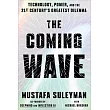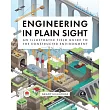Elevate your mobile app development skills using reusable software development methodologies and code design principles, leveraging proven strategies from industry experts who have fostered thriving developer communities
Key Features:
- Cover code structure, app architecture, testing, performance optimization, error handling, and more
- Get hands on with code examples and exercises to apply design patterns and best practices in real-world scenarios
- Leverage the intricacies of the Flutter framework to build better apps for your clients
- Purchase of the print or Kindle book includes a free PDF eBook
Book Description:
Flutter’s rapid adoption by developers and businesses alike has led to an increased demand for skilled developers who can deliver high-quality Flutter apps. Flutter can be a great tool to develop apps for yourself, but you don’t always need to consider things like scalability or business goals as a hobbyist. When you build apps for a business, however, you must use specific tools to help the business achieve its goals. This requires solutions to be fast, reliable, and delivered on time. This book will help you meet these business requirements.
You’ll begin by learning how to build responsive UIs that work on all devices. Next, you’ll delve into state management, understanding how to select the appropriate solution and gaining hands-on experience with InheritedWidget, ChangeNotifier, and BLoC. Later, you’ll move on to high-level practices such as layered architecture, dependency injection, and repository patterns. The book will also show you how to develop features of any complexity, such as multithreading and native layer implementations. You’ll also learn how to ensure the quality of your solutions by prioritizing testing.
By the end of this book, you’ll be able to deliver well-architected Flutter projects that are stable, scalable, and maintainable.
What You Will Learn:
- Translate business requirements into technical solutions
- Understand when and where specific design patterns would be applicable
- Separate concerns into multiple layers with scoped responsibility
- Build reusable architecture that can be applied to any type of app and supported by various teams
- Debug and solve problems before they reach the user
- Prevent production bugs by prioritizing testing during the development cycle
- Design encapsulated features that are resilient to business requirement changes and software updates
Who this book is for:
If you’re a mobile developer who has already realized the potential of Flutter as a tool to solve business problems and are looking forward to leveling up your app-building skills, then this book is for you. Freelancers, agencies, or individuals who have already developed basic applications with Flutter and want to level up their skills to build production-ready apps at scale will find this book helpful. Basic Flutter knowledge and experience in building apps will be beneficial. Moreover, if you’re transitioning from another mobile framework, this book will make the transition easier.
Table of Contents
- Best Practices for Building UIs with Flutter
- Responsive UIs for All Devices
- Vanilla State Management
- State Management Patterns and Their Implementations
- Creating Consistent Navigation
- The Responsible Repository Pattern
- Implementing the Inversion of Control Principle
- Ensuring Scalability and Maintainability with Layered Architecture
- Mastering Concurrent Programming in Dart
- A Bridge to the Native Side of Development
- Unit Tests, Widget Tests, and Mocking Dependencies
- Static Code Analysis and Debugging Tools



 天天爆殺
天天爆殺  今日66折
今日66折 




























 博客來
博客來 博客來
博客來 博客來
博客來 博客來
博客來 博客來
博客來